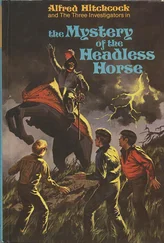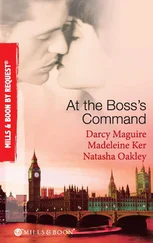Ruel Smith - The Rival Campers Ashore - or, The Mystery of the Mill
Здесь есть возможность читать онлайн «Ruel Smith - The Rival Campers Ashore - or, The Mystery of the Mill» — ознакомительный отрывок электронной книги совершенно бесплатно, а после прочтения отрывка купить полную версию. В некоторых случаях можно слушать аудио, скачать через торрент в формате fb2 и присутствует краткое содержание. Жанр: Классический детектив, foreign_detective, foreign_prose, на английском языке. Описание произведения, (предисловие) а так же отзывы посетителей доступны на портале библиотеки ЛибКат.
- Название:The Rival Campers Ashore: or, The Mystery of the Mill
- Автор:
- Жанр:
- Год:неизвестен
- ISBN:нет данных
- Рейтинг книги:4 / 5. Голосов: 1
-
Избранное:Добавить в избранное
- Отзывы:
-
Ваша оценка:
- 80
- 1
- 2
- 3
- 4
- 5
The Rival Campers Ashore: or, The Mystery of the Mill: краткое содержание, описание и аннотация
Предлагаем к чтению аннотацию, описание, краткое содержание или предисловие (зависит от того, что написал сам автор книги «The Rival Campers Ashore: or, The Mystery of the Mill»). Если вы не нашли необходимую информацию о книге — напишите в комментариях, мы постараемся отыскать её.
The Rival Campers Ashore: or, The Mystery of the Mill — читать онлайн ознакомительный отрывок
Ниже представлен текст книги, разбитый по страницам. Система сохранения места последней прочитанной страницы, позволяет с удобством читать онлайн бесплатно книгу «The Rival Campers Ashore: or, The Mystery of the Mill», без необходимости каждый раз заново искать на чём Вы остановились. Поставьте закладку, и сможете в любой момент перейти на страницу, на которой закончили чтение.
Интервал:
Закладка:
"Here, hold on a minute," called Henry Burns, who had gallantly divested himself of his sweater, while the rain drops splashed coldly on his bare arms. "Put this on. I don't need it."
But she tripped on, unheeding; and twice, in their strange flight toward the mill, the lightning revealed her to them – a flitting, odd little thing, like a figure in a dream. Indeed, when they saw her, darting across the bridge over the brook, just ahead of them, they would scarcely have been surprised had she vanished, as witches do that dare not cross running water.
But she kept on, and they came presently, all out of breath, in the shadow of the old mill. The three gained the shelter of a roof overhanging a narrow platform that ran along one side, and paused for a moment to rest.
It was a dismal place, by night, but the child seemed at ease and without fear.
"I know every inch of the old mill," she said, as though by way of reassurance. "You've just got to look out where you step, and you're all right."
Had it not offered some sort of shelter from the storm, however, the place would hardly have appealed to Harvey and Henry Burns. The aged building seemed to creak and sway in the wind, as though it might fall apart from weakness and topple into the water. The stream plunged over the dam with a sullen roar, much as if it chafed at the barrier and longed to sweep it altogether from its course and carry its timbers with it. Once the lightning flashed into and through all the cobwebbed window-panes, and the mill gave out a ghastly glare.
"Nice, cheerful place for a night's lodging," remarked Henry Burns. "Perhaps we'd better roost right here. I don't exactly take a fancy to the rickety old shell."
"Oh, but it's lovely when you're inside," exclaimed the child, almost reprovingly. "There's the meal-bags to sleep on. And look, you can see the stove, in through the window, red with the fire. It keeps things dry in the mill. I've slept there twice, when gran' was after me with a stick."
"All alone?" asked Henry Burns, looking at the child wonderingly, and feeling a sudden pity for her.
"Why yes," said she. "There's nothing to be afraid of – only rats. Ugh! I hate rats. Don't you?"
"Go ahead," said Henry Burns, stoutly. "We'll follow you. It looks like a real nice place, don't it, Jack?"
"Perhaps," muttered Harvey.
The girl crept along the platform and descended a short flight of steps that led to the mill flume – a long box-like sluice-way that carried the water in to turn the mill wheels. These wheels were silent now, for two great gates at the end of the flume barred out the waters. The girl tripped lightly along a single plank that extended over the flume. The boys followed cautiously.
"Can you swim?" asked Harvey.
"Why, of course," said she.
Presently she paused, took a few steps across a plank that led to a window, raised that, climbed in and disappeared.
"Come on," she called softly. "I'll show you where to step."
"Whew!" exclaimed Harvey. "This is worse than a gale in Samoset Bay."
"Oh, it's lovely when you get inside," said Henry Burns – "all except the rats. Come along."
They climbed in through the window, dropping on to a single plank on the other side, by the child's direction.
"Now stay here," she said, "till I come back."
It was pitch dark and they could not see where they were; but they could hear her light steps as she made her way in through the mill and disappeared.
"She'll never come back," exclaimed Harvey. "Say, wake me up with a good, hard punch, will you, Henry? I know I'm dreaming."
But now they perceived the dull glimmer of a lantern, turned low, being borne toward them by an unseen hand. Then the figure of the girl appeared, and soon the lantern's rays lighted up vaguely the interior of the mill.
They were, it proved, still outside the grinding-rooms, in that part of the mill where the water would pour in to turn the wheels. It was gaunt and unfinished, filled with the sound of dripping waters; with no flooring, but only a scanty network of beams and planking for them to thread their way across.
They followed the child now over these, and came quickly to a small sliding door, past which they entered the main room on the first floor. There, in truth, it would seem they might not be uncomfortably housed for the night. A small box-stove, reddened in patches by the burning coals within, shed warmth throughout the room. There were heaps of empty meal-bags lying here and there. And, for certain, there was no rain coming in.
And now, having been guided by their new acquaintance to their lodgings, so strangely, they found themselves, almost on the moment, deserted.
"Here you are," said the child, with somewhat of a touch of pride in her voice. "Didn't I say I'd get you in all right? Don't turn that light up too bright. Someone might see it from the road. And get out early in the morning, before old Ellison comes. Good night and sleep tight. And don't you ever, ever tell, or I'll catch it. I don't need the lantern. I can feel my way."
The next moment she was gone. They would have detained her, to ask more about herself; about the mill wherein they were; to ask about Ellison, the owner. But it was too late. They heard her steps, faintly, as she traversed the dangerous network of planking, and then only the steady, dripping sound came in through the little doorway.
"Well," exclaimed Harvey, throwing himself down on a pile of meal-bags, close by the fire, "this isn't the worst place I ever got into, if it is old and rickety. Don't that fire feel good?"
He drew off his dripping sweater and hung it on a box, which he set near, and rubbed his arms vigorously.
"This is such a funny old room I can't keep still in it," he continued. "The fire feels great, but I want to explore and see what kind of a place I'm in."
"Oh, sit down and be comfortable," replied Henry Burns. "Just make believe you're in the cabin of the Viking ."
"Say, Henry," exclaimed Harvey warmly to his friend's reply, "do you know I'm half sorry we let the Viking go for the summer. Of course 'twas mighty nice of Tom and Bob to ask us to spend the summer in Benton with them; but I don't know as canoeing and fishing and that sort of thing will do for us. I'd like to have a hand on the old Viking's wheel right now."
"Oh, we'll get sailing, too," answered Henry Burns. "We're going to try the pond, you know. Hello, there's a wheel, now. Looks like a ship's wheel, at that – only rougher. You can stand your trick at that, if you want to, while I sit by the fire."
He was sorry he spoke, the next moment, for Harvey – never too cautious – gave a roar of delight, and darted over to where his friend had pointed.
There, attached to a small shaft that protruded from the wooden partition which divided the two lower rooms of the mill, was a large, wooden wheel, with a series of wooden spokes attached to its rim, after the manner of a ship's wheel.
"Hooray!" bawled Harvey, seizing the wheel and giving it several vigorous turns, "keep her off, did you say, skipper? Ay, ay, we'll clear the breakers now, with water to spare.
"Here you," addressing an imaginary sailor, "get forward lively and clear that jib-sheet; and look out for the block. Hanged if we want a man overboard a night like this, eh, Mister Burns?"
"Say, Jack, I wouldn't do that," replied Henry Burns, laughing at his comrade's antics. "You don't know what that may turn."
"Don't I, though!" roared Harvey, jamming the wheel around with a few more turns. "Why, you land-lubber, it turns the ship, same as any wheel. This is the good ship, Rattle-Bones , bound from Benton to Boston, with a cargo of meal – and rats. We've lost our pilot, Bess – what's her name – and we've got to put her through ourselves.
Читать дальшеИнтервал:
Закладка:
Похожие книги на «The Rival Campers Ashore: or, The Mystery of the Mill»
Представляем Вашему вниманию похожие книги на «The Rival Campers Ashore: or, The Mystery of the Mill» списком для выбора. Мы отобрали схожую по названию и смыслу литературу в надежде предоставить читателям больше вариантов отыскать новые, интересные, ещё непрочитанные произведения.
Обсуждение, отзывы о книге «The Rival Campers Ashore: or, The Mystery of the Mill» и просто собственные мнения читателей. Оставьте ваши комментарии, напишите, что Вы думаете о произведении, его смысле или главных героях. Укажите что конкретно понравилось, а что нет, и почему Вы так считаете.












